Preventive Dentistry Tacoma
Safeguarding Against Dental Decay & Damage

Preventive dental services are used to better protect patients’ smiles against dental decay, disease, and damage. Their effectiveness results in dentists encouraging individuals to pursue proactive solutions, such as dental exams and cleanings every six months, custom nightguards, and sleep apnea and TMJ treatment. Dr. Miller is no different, as she views preventive dentistry as pivotal to one’s oral healthcare journey. If you need help to stay on top of your dental routine, call us today to schedule an appointment.
Why Choose Commencement Bay Dentistry for Preventive Dentistry?
- Dentist is In-Network with Multiple Dental Plans
- We Treat Dental Patients of All Ages
- High-Resolution Imaging for Accurate & Early Diagnoses
Dental Checkups & Cleanings
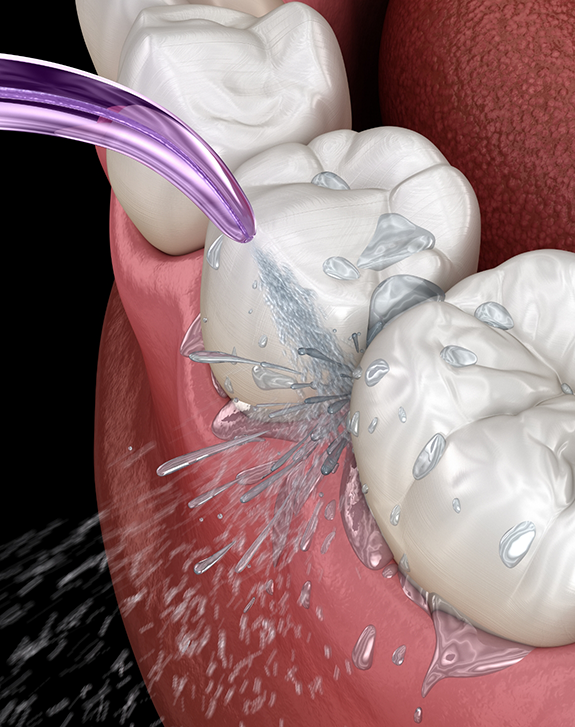
Every six months, your smile needs a thorough examination and cleaning. When you come in for a checkup, Dr. Miller will talk with you about any pain or concerns you have. This is a great opportunity to discuss cosmetic dentistry if you’ve been thinking about improving your smile. We’ll take digital X-rays and intraoral images, if necessary, to update your records.
Your checkup will include a thorough tooth-by-tooth inspection; a head and neck exam; an assessment of your jaws and occlusion (how upper and lower teeth fit together); a periodontal exam; and an oral cancer screening. Following the checkup, you’ll meet with your hygienist for a gentle cleaning. She’ll remove plaque, tartar, and debris from your teeth, and then discuss brushing and flossing habits with you. If you show signs of gum disease, the hygienist will work with you to plan treatment.
Nightguards for Bruxism
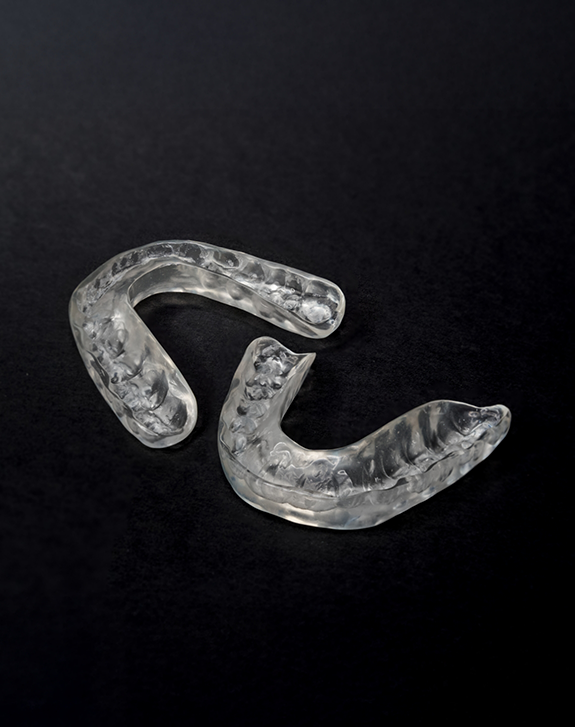
Grinding your teeth, known as bruxism, is a destructive habit that can cause serious wear on your smile. Ultimately, that wear can lead to TMJ disorder, malocclusion, and headaches. Bruxism can also cause tooth breakage, which means emergency dental situations and gum infections. Fortunately, a custom-made mouth appliance can prevent the wear and excessive forces on your teeth and prevent or improve many of the issues associated with clenching and grinding. At your dental exam, if Dr. Miller notices tooth wear indicative of bruxism, or if you know that you grind your teeth, ask about a nightguard for bruxism to protect your smile.
There are many benefits of wearing a nightguard, including:
- Protection from Tooth Damage – Night guards act as a barrier between the upper and lower teeth, preventing them from grinding or clenching against each other. This helps protect teeth from wear and erosion, chipping and cracks, and unwanted movement.
- Relief from Jaw Pain – By reducing the force of clenching and grinding, night guards can help alleviate jaw pain, headaches, and symptoms related to Temporomandibular Joint Disorder (TMJ)
- Cost-Effective Solution – By preventing serious dental damage, night guards can reduce the need for costly dental procedures in the future, making them a smart long-term investment.
Sleep Apnea Treatment

When an obstruction occurs while you are asleep, it can lead to chronic fatigue and more serious symptoms if left unchecked. Dr. Miller and our team can examine your mouth, throat, and face as well as go over your lifestyle habits and health history to determine if you have sleep apnea. If so, we will refer you to a sleep apnea specialist in the South Sound who can provide effective treatment options for snoring as well as custom-made oral appliances to improve sleep and breathing quality.
TMJ Treatment
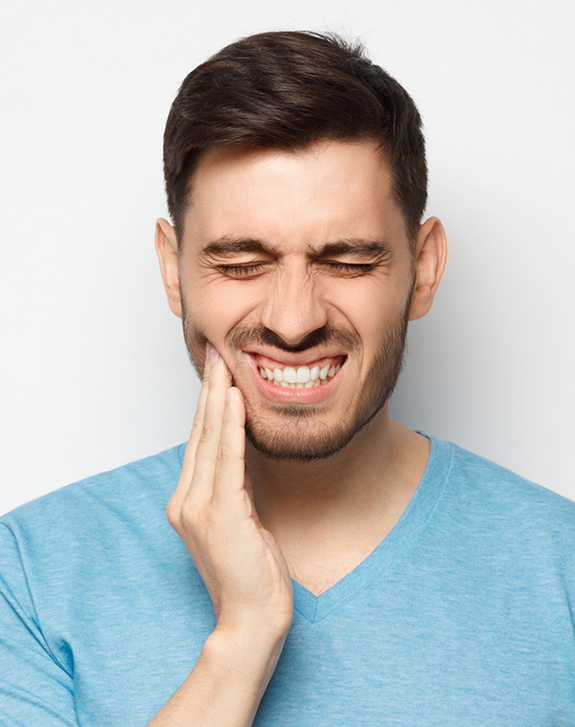
Temporomandibular joint (TMJ) disorder or TMD is a condition that forms when the jaw joints located on either side of the face are overworked and lead to chronic pain. Common symptoms include difficulty eating, popping and clicking of the jaw joints, and even frequent headaches. Dr. Miller works closely with trusted Temporomandibular Joint Specialists in multiple modalities to provide a solution to your pain.
TMD (Temporomandibular Disorder) treatments vary depending on the severity and cause of the condition, but often involve a combination of self-care, physical therapy, massage, acupuncture, Botox therapy, and orthodontics. Fortunately, there are numerous things you can do yourself at home to assist with TMJ disorder, and several treatment options exist:
Self-Care and Lifestyle Modifications
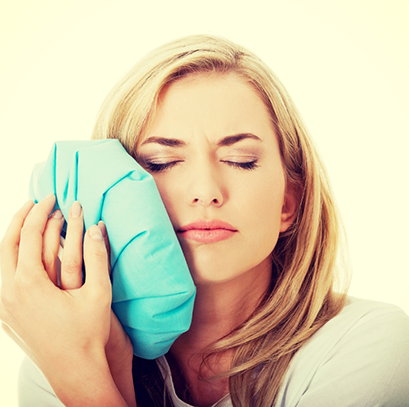
- Rest the joint: Avoid activities that aggravate your jaw, such as chewing gum, biting your nails, or clenching your jaw.
- Apply heat or ice: Alternating between heat and ice packs can help relieve pain and muscle spasms.
- Eat soft foods: Reduce the strain on your jaw by choosing foods that are easy to chew.
- Manage stress: Stress can worsen TMD symptoms. Relaxation techniques, such as deep breathing or meditation, can be helpful
- Good posture: Maintaining good posture can help reduce strain on the jaw muscles. Improper posture, especially when sitting at a desk or using electronic devices, can strain the jaw and neck. Keep your head aligned with your spine, sit with shoulders relaxed and back supported, and avoid viewing your phone with your head bent forward beyond 85 degrees or cradling the phone between your shoulder and ear.
Treatment Modalities
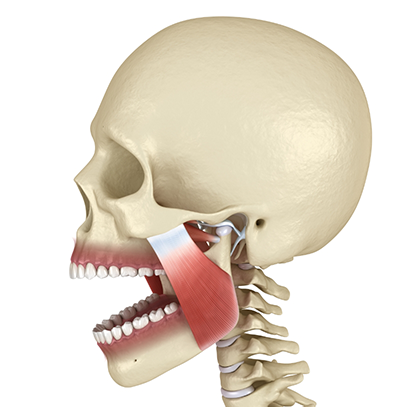
- Physical Therapy:Physical therapists can guide you through exercises to stretch and strengthen the jaw muscles, improving range of motion and reducing pain. They may also incorporate treatments like ultrasound, TENS (transcutaneous electrical nerve stimulation), massage therapy and moist heat to help with pain and muscle relaxation.
- Mouthguards/Splints: Custom-fitted mouthguards or splints can help reduce teeth grinding and clenching, and can also help position the jaw in a more favorable way.
- Bite adjustments: Dental work to correct bite problems or replace missing teeth can sometimes help reduce strain on the jaw joint.
- Orthodontics: In some cases, braces or Invisalign may be recommended to correct bite issues.
- Trigger point injections with TMD Specialists: Injections of substances like corticosteroids or botulinum toxin into painful muscle knots can provide relief.
Dr. Miller is highly experienced in the evaluation and diagnosis of temporomandibular joint (TMJ) disorders. She will guide you through conservative treatment approaches and discuss a range of available modalities tailored to your needs. We collaborate closely with respected TMD specialists throughout the South Sound region to ensure you receive the most effective care for your specific treatment plan and symptoms.

